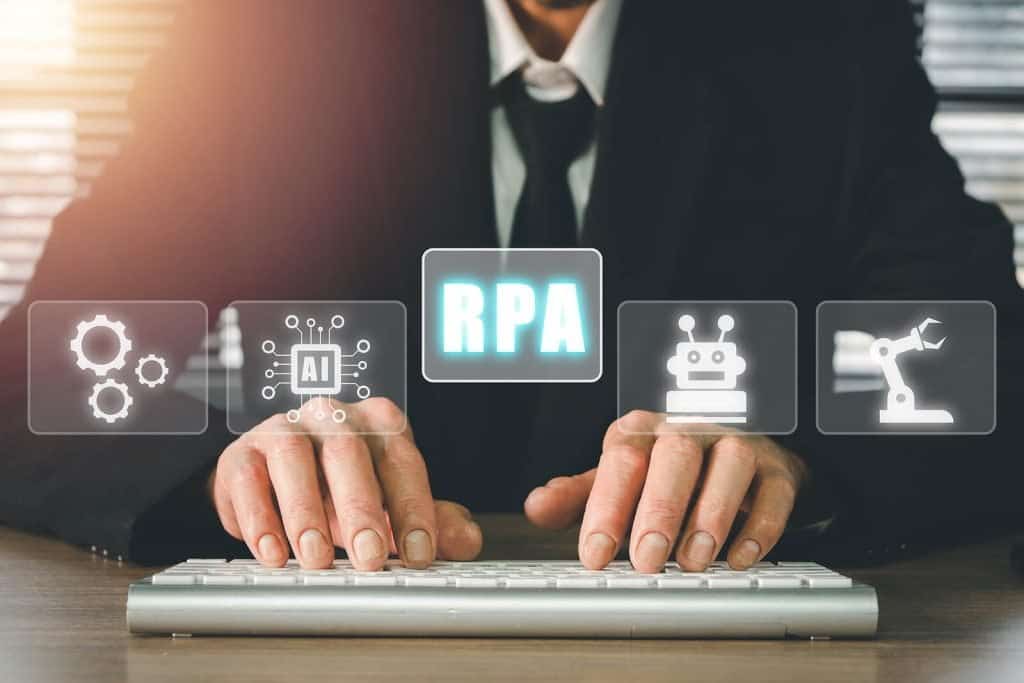Read on to explore interesting RPA trends and developments in automation to look forward to in the upcoming year.
Introduction
The terms “automation” and “Robotic Process Automation” have turned out to be the buzzwords of 2023 technology trends. Growth, innovation, and widespread adoption with constant experimentation are the hallmarks of automation success.
However, it’s impossible to classify automation as a single thing. Robotic Process Automation (RPA), integration platform as a service (iPaaS), and automation are often hailed as quick and practical approaches to optimize critical business processes and prolong the life of legacy systems in the race for digital transformation. The tech future will be driven by automation, as 2023 will mark the year for mammoth digital goals.
Robots designed for use in process automation can do routine tasks just as well as humans. Tasks such as file transfers, email scanning, program logins, API connections, and data extraction can all be automated with RPA, iPaaS, and automation. This article will discuss the most interesting RPA trends and developments in automation to look forward to in the upcoming year!
Various Applications Driving RPA Trends
Over the past few years, demand for RPA services has skyrocketed. Grand View Research estimates that the value of the worldwide RPA automation industry will reach 30.5 million by 2030. When RPA first appeared, replacing humans as the primary focus. By simplifying the automation of additional business and IT operations, RPA may aid in digital transformation and the creation of success stories. There has been an uptick in efficiency and achievement for many thanks to RPA partnerships. Let’s see the top trends ruling the market:
- System Architectures with Little or No Coding Necessary
Because of their similarities, the terms “Low-Code” and “No-Code” are frequently used interchangeably. Two types of platforms aim to make it possible for non-programmers to create their own business solutions: low-code and no-code.
In contrast to no-code platforms, ideal models for automation tools, low-code ones may nevertheless necessitate some coding in some circumstances.
This means that the people who will benefit the most from no-code technology are independent programmers or those who have never touched a line of code. However, low-code technology is popular with both amateur and professional programmers since it necessitates some familiarity with coding. Low-code platforms have the advantage over other development environments in that they do not need developers to completely abandon the use of code. Platforms that incorporate both low-code and no-code technologies are increasingly being used by forward-thinking enterprises because of the increased flexibility and control they provide over the development cycle.
- Wider Adoption of NLP technologies and conversational AI
Robotic process automation is at the core of intelligent automation, which focuses on many technologies. NLP and conversational AI tools are commonly included by leaders in their intelligent automation wishlists as they expand the scope of their IA usefulness. Numerous opportunities are becoming available due to the advantages of NLP and conversational AI.
- Voice Recognition Software
Voice recognition technology is currently present in products like Amazon Alexa and Google Home, but in 2023 they will get more traction and adoption. It is expected to progress even further going forward. Beyond only comprehending orders, voice recognition will advance to include natural language processing (NLP) capabilities and the ability to identify emotions in speech. As a result, businesses can use voice recognition for sales transactions or even customer service interactions.
- Deep Learning and Machine Learning
Artificial intelligence’s Machine learning (ML) and deep learning (DL) subfields enable computers to learn from data without explicit human programming. Businesses employ ML algorithms to create predictions based on data sets, whereas DL algorithms can autonomously learn from massive volumes of data.
These technologies enable businesses to swiftly and reliably evaluate massive amounts of data, making them essential tools for internal organizational decision-making.
- Forecasting in Maintenance
Artificial intelligence is bringing predictive maintenance to the next level, allowing it to optimize maintenance schedules, discover defects, and predict breakdowns before they create costly downtime or damage.
According to a survey by Next Move Strategy Consulting, the worldwide predictive maintenance industry earned $5.66 billion in 2021 and is predicted to surge to $64.25 billion by 2030.
One useful application of the IIoT is predictive maintenance. By 2026, Gartner predicts that 60 percent of IoT-enabled predictive maintenance solutions will be supplied as part of enterprise asset management products, up from 15 percent in 2021.
- Increasing use of generative AI
Generative AI is predominantly determined by the use of AI algorithms and machine learning techniques that create new and original material by learning from existing data, such as audio files, text, and photos. Generative AI is widely employed for various tasks, encompassing the creation of software programs, accelerating the creation of drugs, processing photos, and scaling and developing organizations.
- Intelligent automation is used more quickly in SMBs.
The most common use case for digital technology that small and medium businesses are showing interest in adopting is process optimization. SMBs can now take advantage of automation choices that are more reasonably priced on the market to lower expenses, enhance customer service, and boost competitiveness.
- Finding sustainable automation methods through process evaluation
To effectively manage employees and operations seamlessly, businesses are embracing and upscaling their Intelligent Automation initiatives. Frameworks for process assessment and discovery offer practical, actionable insights that may be used to prioritize crucial processes, make educated decisions, and effectively design a rich automated production pipeline. Increasing operational efficiency will eventually be aided by the sustainable adoption of automation.
- The Hyperautomation Trend
Businesses today are eager to be at the forefront of this technological revolution, and the advent of hyper-automation represents the next exciting chapter in this tale.
But hyper-automation can’t be applied universally, and businesses would do well to keep up with current developments such as those discussed above. Finding hyper-automation solutions tailored to your specific business demands is even more critical.
RPA Trends – Final Thoughts
One of the most exciting technologies on the horizon, automation has a wide range of possible applications. The possibilities are boundless, ranging from robotic process automation for menial jobs like data input to automated customer service exchanges enabled by voice recognition technology!
Businesses will need to stay abreast with these trends if they want to be competitive in the market and take advantage of all the potential presented by the growth of AI technology since innovations like these will soon come into play.
Every year brings fresh developments that change the way businesses are run. Regarding automating business processes with RPA, 2023 looks to be a pivotal year. Growth-oriented businesses will eventually find process automation essential. Many of today’s most pressing business difficulties may be met head-on with the help of business process automation software, which also has the added benefit of increasing productivity. Staff morale is boosted as they see the possibility of advancement from lower-level, more routine work to higher-level, more intellectually stimulating work.
In terms of RPA trends, these technologies will advance in sophistication over the coming years as AI develops, providing new opportunities for businesses wishing to enhance their operations or derive insights from their data sets. For those interested in exploring this new universe of possibilities, 2023 will undoubtedly be exciting!

